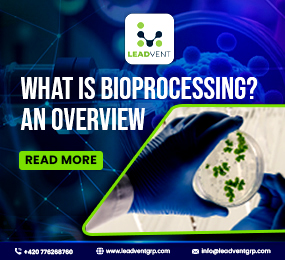Biologics has seen incredible success recently. This triumph has led to significant advancements in bioreactors and bioprocessing techniques. For professionals working in the biopharmaceutical field, keeping up with these developments is a must. In this blog, we will be looking at the future of bio-processing by focusing on key trends and innovations you need to watch for.
The rise of biologics and their impact on the industry
However, producing these biologics entails complex bioprocessing techniques like making biological drugs from living organisms such as recombinant proteins or viral gene therapies that involve the cultivation of engineered cell lines in bioreactors to scale up volume, yield, and efficiency. Staying current in this area is crucial to maintain competitiveness.
Innovations shaping the future
30% increased productivity and 20% cost reduction have been witnessed after revolutionizing the industry through continuous bioprocessing. Single-use technologies (SUTs), which help cut down contamination and enhance effectiveness, are used by 85% of bio manufacturers. On the other hand, digital transformation and Industry 4.0 tools such as digital twins and simulation algorithms optimize operations while improving management within manufacturing processes for biotechnological purposes.
Ensuring Quality Assurance & Compliance
Meeting regulatory standards poses challenges because companies need to adhere strictly to quality standards; ensure safety as well as keep abreast with changing guidelines. Adaptive immune-cell therapy holds promise for cancer treatment since it alters a patient’s immune cells so that they specifically target cancer cells, leading to better outcomes among advanced gastric cancer patients.
AI-Driven Customer Service Improvement
Artificial Intelligence (AI) plays a vital role in customer service within biopharmaceuticals. AI-powered chatbots and virtual assistants make it easier for customers to interact with the company, giving quick and precise answers. Indeed, McKinsey & Company estimates that AI in customer service can reduce response time by 50% and improve customer satisfaction by 35%.
Optimizing Supply Chain Management
Supply chain management is another critical area. Improved demand forecasting and inventory management have been made possible through advancements in AI and predictive analytics. Therefore, waste can be reduced while timely delivery of biologics can still be achieved.
Data Analysis for Strategic Insights
Data analysis is important because it provides key insights that drive strategic decisions. Advanced algorithms as well as machine learning models analyze large volumes of data to give very useful reports on product development and operational efficiency.
Marketing Strategies for Bioprocessing
Promoting biological products demands targeted strategies that highlight the unique qualities of these therapies. Using digital marketing tools and data analytics will help companies reach their intended audience more efficiently thus increasing market penetration.
Community Building and Collaboration
There is a need to establish strong communities within the biopharmaceutical industry. Networking platforms such as conferences or forums such as the 2nd Annual Bioprocessing and Biologics Forum open up avenues for collaborations.
The Significance of Statistics on Advancements in Bioprocessing
Bioprocessing advancements greatly rely on precise statistical analysis. The global biopharmaceutical market is projected to increase from $275 billion in 2021 to $500 billion by 2025 at a CAGR of 15% according to a survey carried out by BioPlan Associates. Continuous bioprocessing can increase annually by 45%, while single-use technologies can reduce the set-up time and production cost by up to 50% and 40% respectively. The trends are likely expected to reduce time-to-market for new biological drugs by about 25% and boost production efficiency levels by around 35%. Therefore, reliable statistics become necessary for companies seeking to remain competitive in this dynamic industry.
Frequently Asked Questions (FAQs)
What distinguishes continuous bioprocessing from traditional batch processes?
Continuous bioprocess ensures that there is no breakage when it comes to the making of biological products, leading to increased productivity and lowered costs compared with conventional batch processes. This method cuts down downtime thereby improving effectiveness with constant output scaling.
Why conformity is vital in bioprocessing?
Adherence to regulatory compliance is very important for maintaining the quality, safety and efficacy of biologicals. It saves firms from facing legal charges, product recall incidences as well as patients’ safety issues thereby increasing their access to the market and maintaining their reputation corporately.
What role does AI play in customer service for biopharmaceutical companies?
AI enhances client service experiences within the bio-pharmaceutical sector through chatbots and virtual assistants that offer instant feedback. These also help lessen interactions between customers and businesses, minimize response time intervals, and offer overall customer satisfaction.
Conclusion
The future of bioprocessing looks bright due to innovations like continuous bio-processing technology as well as single-use technologies and AI that improve the efficiency and quality of products in addition to reducing the costs involved. Attending the 2nd Annual Bioprocessing and Biologics Forum offers a great place for learning and networking purposes, aimed to ensure competition within this rapidly transforming sector.














